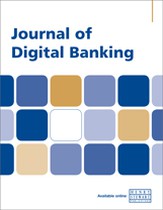Empowering Singapore’s SMEs: FinTech P2P lending — A lifeline for SMEs’ survival?
Abstract
The COVID-19 pandemic has sent shock waves throughout the world, pushed countries into lockdown, and wreaked havoc on the world’s people and the global economy. The damage to economies around the world caused by the COVID-19 pandemic has far exceeded that of the global financial crisis. While all businesses suffered hugely, it would be of grave consequence if the small and medium-sized enterprises (SMEs), an important segment of every country’s economy, are unable to withstand the shock wave and sustain themselves beyond this pandemic. The COVID-19 pandemic has highlighted the importance of cash flow or working capital for the viability of SMEs, exposing their vulnerability and the deterioration in their business conditions, given their limited financial resources and weaker access to financing. Hence, enabling access to finance for SMEs is important in order to restore economic growth and help economies overcome the current crisis. This paper contributes to the literature by (i) providing an understanding of the financing gaps faced by SMEs and factors that impede their credit evaluation by traditional financial institutions, (ii) reviewing peer-to-peer (P2P) lending platforms as an alternative finance option for SMEs and (iii) proposing measures to be considered by regulatory bodies, in Singapore for example, aimed at facilitating the growth of the FinTech sector while expanding alternative financing options for SMEs. Proposed regulatory measures are given due consideration for the interplay between innovation, new risks and the existing regulatory landscape, in pursuit of the main objective of empowering SMEs to embrace the digital renaissance for a positive future.
The full article is available to subscribers to the journal.
Author's Biography
Grace Lee is a postgraduate student, Master of IT in Business, at Singapore Management University. Grace has more than 20 years of experience in financial and management accounting in diverse industries such as real estate, tourism, automobile and information technology (IT). She holds an MBA and is also qualified as a Chartered Accountant of Singapore.
Alan Megargel , PhD, is Assistant Professor of Information Systems (Practice) at Singapore Management University, where he serves as Coordinator of the undergraduate Financial Technology Career Track. His current areas of specialisation include enterprise architecture in banking, service-oriented architecture (SOA), payments technology and non-bank FinTech alternative financial services. Alan has 30 years of industry experience, including Chief Technology Officer at TIBCO Software Asia, Vice President and Head of SOA at OCBC Bank and Senior Enterprise Architect at ANZ Bank. His banking technology experience covers retail and corporate banking, Basel II, data warehouse, data centre operations and technology infrastructure. Alan holds a Doctor of Innovation from Singapore Management University and a Master of Science in Software, Systems and Information Engineering from the University of Sheffield.
